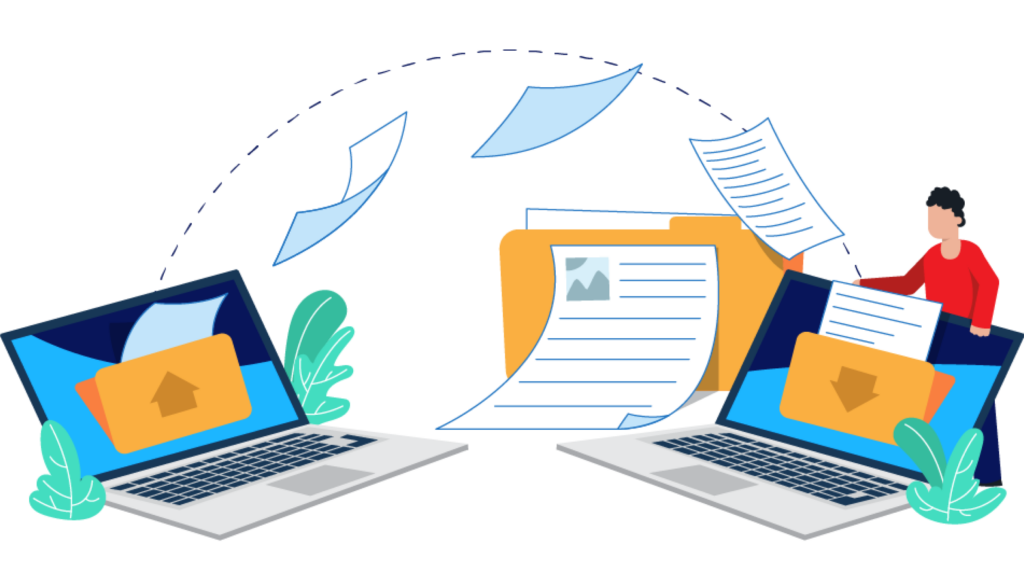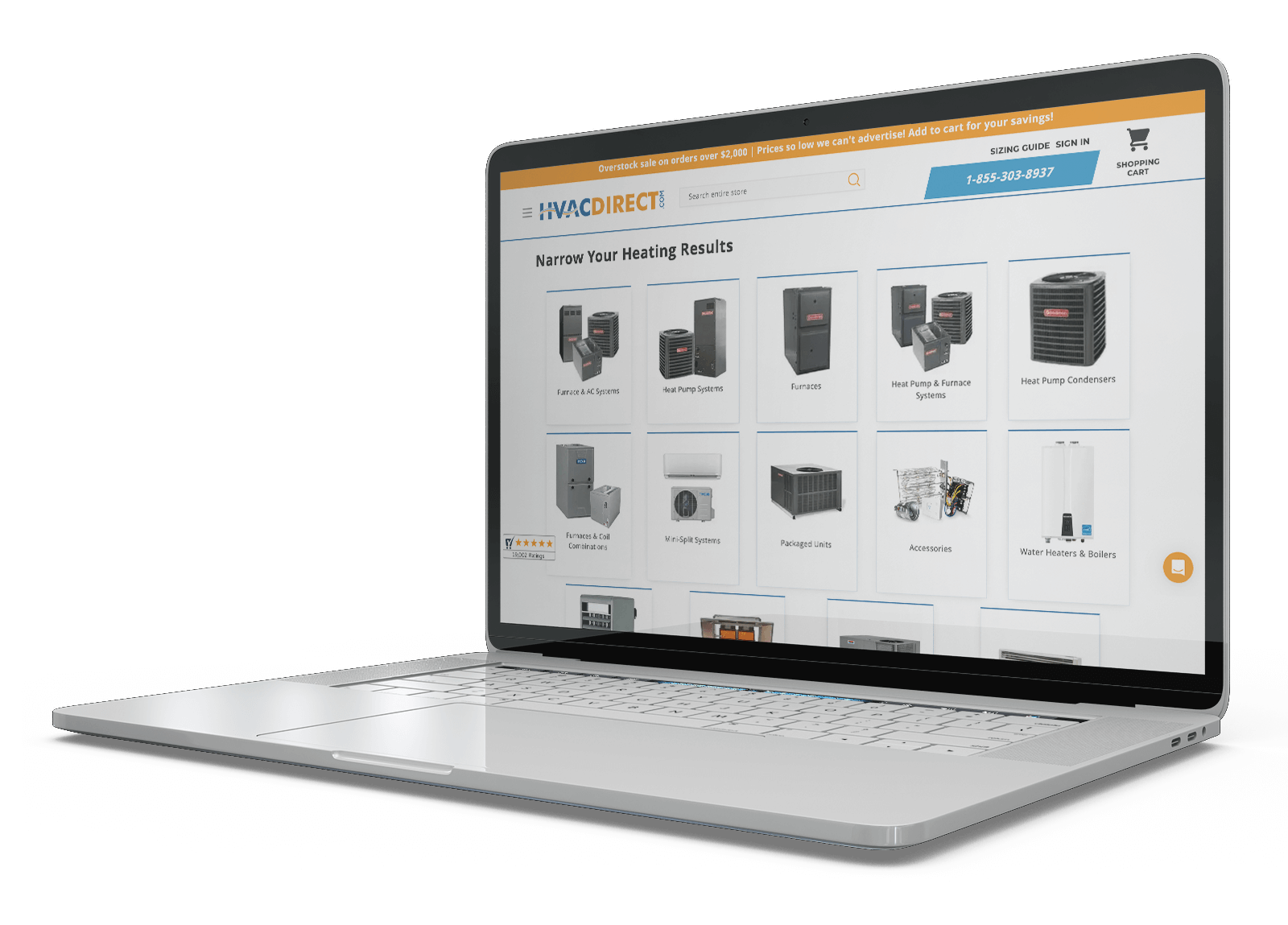HVAC Direct
About HVAC direct:
HVAC Direct isn’t your typical HVAC company. They ditch the middleman, and sell heating and cooling systems directly to homeowners. By eliminating the middleman, HVAC Direct helps not only educate their customers on how to save on one of the biggest purchases in their home, but they also help them alleviate the stress of these (usually) unplanned purchases.
This unique business model requires a special kind of eCommerce platform; one that can handle the complexities of their product range and integrate seamlessly with their existing systems to ensure a solid user experience.
Chris, the Senior Manager of eCommerce at HVAC Direct, had experience with various platforms, and he knew the limitations of off-the-shelf solutions. “We’re not a standard type of product,” he explains, “Using Shopify or similar stores just isn’t an option for us.”
Because of this, Chris knew that HVAC Direct needed a platform that could handle the complexities of their business model, and also would allow them to make the necessary changes they needed.
That’s where Magento (and 121eCommerce) came into the picture.

Why HVAC Direct Chose Magento Open Source:
Chris’s search led him to Magento.
Magento’s open-source platform offered the customization HVAC Direct needed.
“Magento allows us to do whatever we want,”
Chris from 121 ecommerce
“We can handle complex product specifications with all the attributes we need.”
With over 200 product attributes, Chris and the HVAC Direct team needed a platform that could handle their complexities, and with the added complexities, not slow their site speed down.
Another key factor for Chris was scalability.
As HVAC Direct’s business continues to grow, they need a platform that can grow with them. Magento’s open-source structure ensures they are able to scale accordingly.


The Importance of a Solid Magento Partner:
Choosing the right implementation partner was just as crucial as picking the right platform for Chris. Unfortunately, he had frustrating experiences with previous migration attempts. A lack of expertise, and relying on off-shore development (where there was a language barrier) caused numerous headaches. While it was initially a more cost-effective option, Chris mentioned that “a lot of things were breaking, so we were struggling.”
Chris also mentioned:
“What they delivered was pretty much what I was expecting, it was falling flat on its face.”
This is where 121eCommerce stepped in. We brought our team of Magento experts who spoke the same language – literally and figuratively.
“The biggest deciding factor for me was being comfortable,”
“I knew I could hand over the keys and trust them with our complex customizations.”

Overcoming Migration Hurdles
The migration process wasn’t without its hurdles. The sheer volume of customizations on HVAC Direct’s existing platform required extra time and effort. However, our open communication and a collaborative spirit with HVAC Direct ensured their site would be set up for success.

The result: A Platform that Fuels Growth
Today, HVAC Direct leverages Magento’s flexibility to deliver an excellent customer experience. Their competitors that are stuck on less customizable platforms, struggle to offer the same level of detail and ease of use that is found on HVAC Direct’s website.
“We can display things differently and update the site for the consumer to make it easier,”
Chris explains.
This translates into streamlined operations for HVAC Direct, and their customers can find the information they need online significantly faster.
HVAC Direct’s story is a testament to the power of highly customizable eCommerce platforms, and how they must be scalable for current and future growth opportunities. Businesses with unique needs shouldn’t be limited by one-size-fits-all solutions. Outside of a solid platform, choosing an experienced (and trustworthy!) implementation partner goes a long way in ensuring long-term success.
With Magento and 121eCommerce by their side, HVAC Direct is well-positioned to keep growing and delivering exceptional service to their customers. They have found the perfect formula for success in the competitive HVAC sales space.
Latest Success Stories:


Migration & web development


An OSCommerce to Adobe Commerce Migration


